Getting to know the Golden Globe nominees for Best Actress on TV
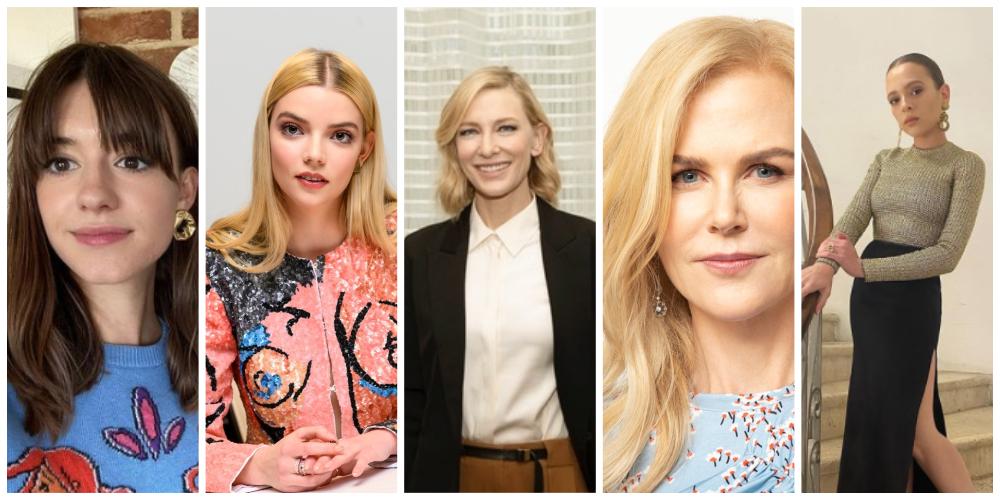
Los Angeles — When the pandemic and lockdown happened, forcing theaters and cinemas to close, people tuned in to their television sets and streaming devices to keep distracted and entertained.
The once lowly boob tube became the main source of entertainment for many and to thousands, probably saved lives from boredom and mental breakdowns.
Today, we would like to highlight the actresses who got recognized for their outstanding performances in a limited series or motion picture made for television: Cate Blanchett, Daisy Edgar Jones, Nicole Kidman, Shira Haas and Anya Taylor-Joy.
Cate Blanchett portrayed Phyllis Schlafy, a prominent activist, lawyer and political lobbyist, in the historical drama TV mini-series, “Mrs. America.”
Daisy Edgar-Jones was Marianne Sheridan, an outspoken student from an affluent family, in the drama series, “Normal People.”
Nicole Kidman portrayed the successful Manhattan psychologist Grace Fraser in the mystery psychological thriller min-series, “The Undoing.”
Shira Haas was Esther “Esty” Shapiro, the unhappily married 19-year-old Jewish woman living in an ultra-Orthodox community in Williamsburg, Brooklyn, New York City in the drama min-series “Unorthodox.”
And Anya Taylor-Joy portrayed the talented and competitive Beth Harmon who desired to be the greatest chess player in the world in the coming-of-age period drama mini-series “The Queen’s Gambit.”
Below are excerpts of our conversations with these talented women:
Cate Blanchett
_2021_02_21_15_35_45.jpeg)
The last time we talked, in April 2020 when lockdown was fairly new, you were making foil unicorns with your daughter. When the world opens up, what are the things you are looking forward to doing again?
I’m looking forward to the world not being cello-taped together in a pale resemblance of its dysfunctional previous iteration. I’m looking forward to emerging into a new world that is sane and inclusive and rational and forward thinking. There’s a lot of challenges I think that face us all and a lot of voices that need to be continually heard and listened to and folded into the societies that we need to re-forge and remake. I don’t want to step out and step backwards, that’s for sure.
And there was a chainsaw incident. Are you okay?
(Laughs) I’m totally fine. The gossip mill. We live in the country and so we’ve been gardening. I didn’t realize it was an Olympic sport, but we’ve been gardening for England. And we were out with a chainsaw and I was standing in the wrong spot, but I’m totally fine, thank you for asking.
We all dream of going back to the cinemas. What is the movie that takes you back to a movie theater?
Oh goodness, I think probably when my mother showed me a Jacques Tati film, it was “Monsieur Hulot’s Holiday” and any film with probably Jacques Tati.
But you know what I’ve been thinking about a lot is my experience of going to drive-ins as a child. I’ve had friends send me pictures of them screening films in their backyards on their garage door and sitting socially distanced with their friends outside.
Because cinema, as much as it is an individualized experience, you sit in the dark and you feel that the screen is speaking directly to you. It is an event; it is a gathering. And the performing arts even more so. I was talking to a friend this morning and was saying that I really want to sit in a group of people that I don’t know, sharing a common focus on the stage, being told a story and reminding what connects us all, because all we’ve been talking about is what separates us. And so I think there is an opportunity to re-school what it is that connects us.
Anyway, that happened to me in the back of my parent’s station wagon at the drive-in. I can’t remember the film. In a way the film was immaterial. It was the experience of sitting in the car with my family, being dark and going on an adventure with those actors and that director and that crew and being told a story.
Nicole Kidman
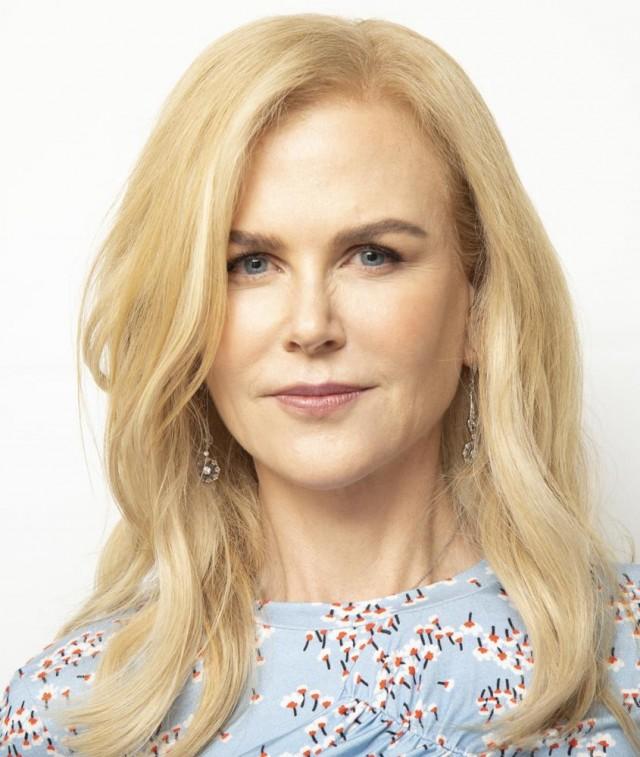
What is your relationship to mysteries?
I've obviously made thrillers my whole career. It's a genre that when it's a psychological thriller, I feel very drawn to. Some of the films that I love that's what I am drawn to initially looking at sort of Nic Roeg and “Don't Look Back” and all of those films that were just so exquisitely made.
Polanski's films, Sidney Lumet, Pakula — so I grew up watching a lot of those films and have a huge love of the genre but you get to do it in a limited series it's really interesting but to get to do it with Susanne (Bier) was fantastic because it's her milieu. She is an accomplished filmmaker so her understanding of how to create tension and keep the audience on the edge of their seats is her forte.
As an actor, I was able just to give myself to her. She and David (Kelley) constructed this twisted, crazy ride that's meant to be a ride. You're meant to hold on tight and be spinning with who, what, how. That is what the series is meant to give you and the responses so far have been saying that that's what they do. The cliffhangers at the end of each one and what people are addicted to.
The movie is also about trust. Talk about your relationship to trust and how would you handle this if it happened to you and your husband deceived you?
No, I'd be devastated. That'd be it. My life would be over. Trust is that's one of the things now that's a huge part of our culture and our life is trust and do you trust when people tell you things? Who do you believe and what is belief in somebody anyway?
Should you just offer trust unconditionally or should it be conditional or should someone have to prove that they're trustworthy? All of those things are really interesting questions in terms of where we're at now as well because a lot of times you're going, I have to trust that you have taken the precautions, that you're doing the social distancing, you're not – that's become now a huge part of our culture, right?
But this series is interesting because as David (Kelly) said, it's like when someone wants to believe something, chooses to believe it and doesn't want to see it differently and we have that as part of our human nature. When your life is good and choosing not to see the cracks. So many people do it, yet when you watch the show, you're like can't you see it. It's right in front of you and then as an audience member, you start going well, actually maybe I'm wrong. That to me is really interesting writing.
In the show, your character turns to her father for help. In your own life, I’m sure you would turn to your mother. What is the best relationship advice you have received from your mom?
So much. I would turn to my father too when he was alive. So much of the advice is just so abundant through my whole life.
My sister and I were talking about it the other day. We've grown up with a woman who's incredibly intelligent, and doesn't mince her words and is not sycophantic, but still nurturing, and will say it like it is. So there are times when a lot of hers is telling you the truth, but also about just getting on with it.
A lot of her pragmatism is just getting on with it. You can go on and on, you can express your feelings, but then ultimately, you have a choice to move forward or to collapse. And so she has always pushed us to that moving forward. And she's raised two girls that now have a strong sense of self, which I hope that's what I can do for my kids.
Anya Taylor-Joy
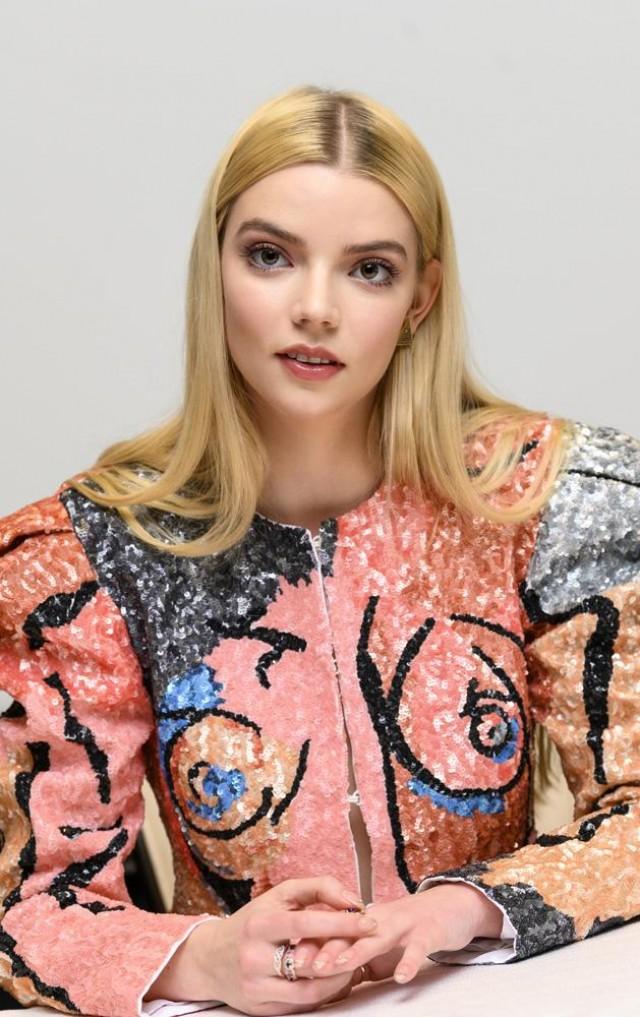
Talk about your own relationship to chess. When did you start playing well? Do you have a technical consultant on set?
My brain was blown. When I discovered that in the '50s and the '60s, it was acceptable and common practice to drug kids to make them easier to handle. I couldn't believe that that wasn't science fiction, and that was history. And I think, it's very problematic that Beth discovers chess, which is a wonderful thing at the same time that she's being forced to take these things because it spirals off and it triggers this constant question of, am I really brilliant at this? Or am I a conduit for these things? Are the drugs actually what's brilliant about me? Or am I brilliant by myself? And she struggles with that throughout the show. And so yeah, that was very interesting.
And then in terms of my own chess knowledge; I had never played chess prior to this. I had been aware of it and fascinated by it, but had never partaken myself and I feel so grateful that I was introduced to the secret magical world by like some of the greats of chess.
Essentially my sensei was a man called Bruce Pandolfini. And he was so kind and generous with his time and with his love, and I really fell in love with the game through him. It was very important for me to make him proud. He's really proud of the show. That makes me very proud. Because I didn't take the responsibility lightly. People that love chess, they love chess. And I am not somebody that's about to mess with something. That's a passion for so many people. So I'm grateful that he feels like I did a good job.
I’d like you to go back when you were a little girl. Where did you make friends of your own age?
I didn't really make friends with, even today. I tend to gravitate towards people who are older. I think that comes from having a very close relationship with my parents, and my siblings who are all a lot older than me. So I was never really a kid. I never really played the kid card. Not in a sad way.
I'm very connected to my inner child, which is like a weird phrase to say, but it's true. Because I literally play make believe all day long. My characters for me, are as real as imaginary friends are for children. And I think I had imaginary friends as a kid because I didn't have the real contact with other kids.
Shira Haas
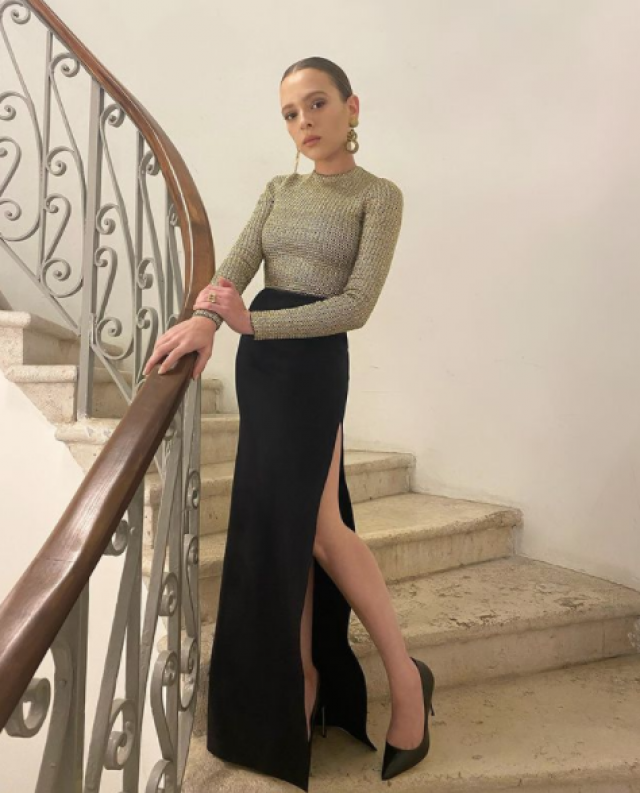
Can you talk about how you embodied this character – shaving your head, learning Yiddish and piano and all that stuff?
It started with a lot of research when I was in Israel actually, even before I went to Berlin. I read a lot about the community and did a lot of research on my own. The biggest research was when I arrived in Berlin. It was almost two months before we started shooting and it was pretty intense. Lots of rehearsals and fittings and also Yiddish lessons, which was really on a daily basis. I had an amazing teacher and I recorded him while I was doing my auditions. I listened to his recordings while I was jogging. I did not listen to Beyoncé. I listened to my Yiddish lines.
Working on the script and working with the creators — they kept writing this really until we started shooting. It was really an open conversation so we talked a lot about the character, about the development of the character. Also the costumes we really worked on it together. As for shaving my head, just a fun fact, it was on the first shooting day. So yes, also starting with this it was a big commitment to the role and besides the fact that I was so nervous starting with it, it actually really helped me to start so hardcore and get into the character and to fully understand her and to really embody her to Shira.
You did an amazing job as Esty. But who is the real Shira Haas?
Oh, that’s a good one. Well, who am I, that’s a big question? It’s interesting because a lot of times I do a very dramatic role and then I talk to people and I have this also easygoing side of me. I’m very stubborn. I’m really curious as a young child. I remember when I was even five I had so many questions. For me obviously it was a blessing. It’s made me who I am as a person, as an actor.
I can really relate to a lot of things with Esty and questions that burned inside of her that she wants to have answered but we come from so many different circumstances so we develop in different connections. But the essence of this I can totally relate to. And who am I otherwise? Everything,
I live in Tel Aviv; I started acting when I was about 17. And also something that I can relate to Esty that is kind of finding herself at the end through art, through singing and I felt also for me acting, when I found acting, I was about 17, I also discovered myself and found my voice in a way that I didn’t find before. So that’s something that I could also relate to. But we’re very different; I come from a secular family. I don’t have a boyfriend.
Daisy Edgar-Jones
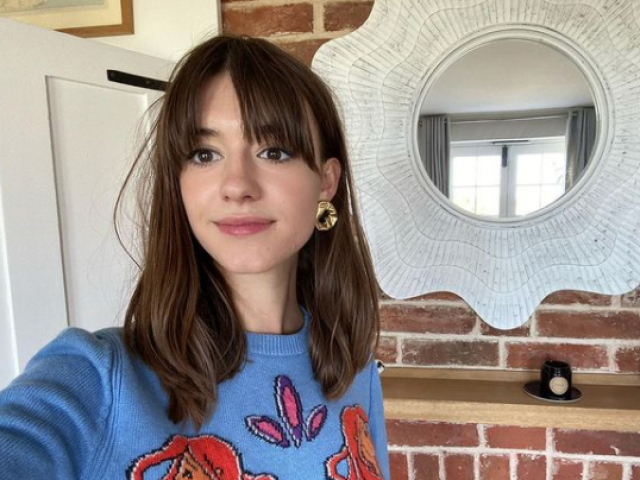
When did you find your voice?
I went to a very, very small school. There were only 22 girls in my whole year, so it was very, very small. And I definitely felt that I’d grown a lot between 11 and 16 but I hadn’t really been able to change because my friends obviously saw me as who I was when I was 11 and I was interested in different things by then.
So it was really when I went to college and I had a vast number of friends to choose from that I found the people that I really felt that I gravitated to and that was when I started to grow up, I felt.
But also, I joined a company called the National Youth Theater and that was my first experience of meeting other people who loved drama as much as me so that was really cool and that opened up my world as well.
What are you doing to handle all the anxiety that’s surrounding us?
I’m not very good without structure. I thought that I would be very chill but I found it very tricky. I think I function best on a high level of anxiety and stress to be honest, so I like a full schedule of each day.
So I try and get up at the same time and then I ring my grandparents and then I do a bit of exercise. I do yoga and then I’m trying to read a lot more because I got out of the habit of reading so that’s been really lovely. I just finished “Just Kids” by Patti Smith, which is great. It’s so good. I just love other artists and references that are in her book. I’ve been trying to look up all the people she references. So that’s been really fun.
I live with three other people who are all living around each other quite nicely so far so that’s good. I do a lot of board games and things like that. I’ve also started a vegetable patch, which is cool, so I’m growing some carrots, which I’m excited about. It’s nice because obviously I can still have a bit of a structure to my day in some way as I can talk to you and do the odd press thing. So it does still feel like I’m working in some capacity. I’m very lucky that I have a show coming out. I think it would be stressful if I was just waiting so I’m lucky for it to be finished, just before we went on lockdown. And it’s complete. So I’m on the whole, handling ok so far. — LA, GMA News



